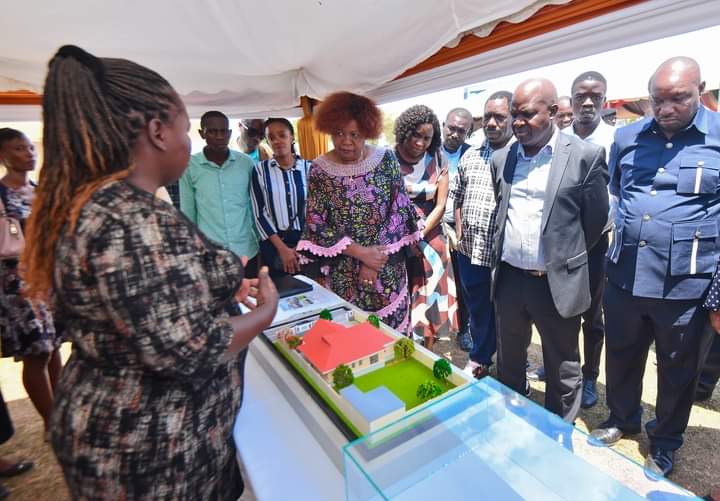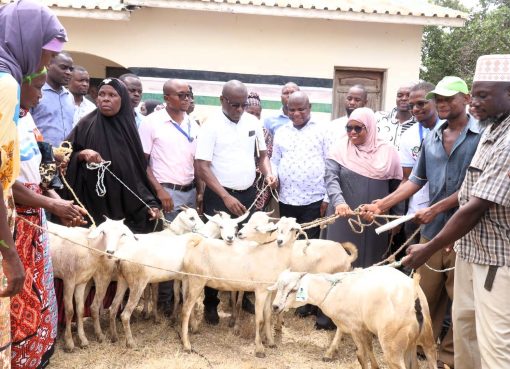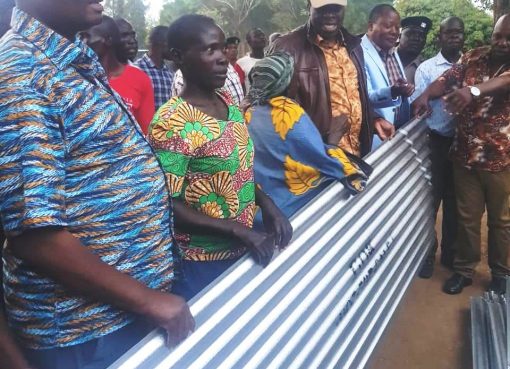The government has reaffirmed its commitment to supporting the growth of Micro, Small, and Medium Enterprises (MSMEs) and the Jua Kali sector through its ongoing affordable housing projects, aimed at delivering dignified homes and providing employment opportunities for the youth.
Cabinet Secretary for Lands, Public Works, Housing and Urban Development, Alice Wahome, highlighted that the decentralized implementation of affordable housing across the country has significantly stimulated growth in the MSMEs sector.
She noted that since the launch of the program, approximately 130,000 housing units are at various stages of construction.
Wahome emphasized that these developments have provided far-reaching benefits, particularly for young people, by creating job opportunities, enhancing skills acquisition, and fostering economic empowerment.
“The Affordable Housing Projects across the country have prioritized the procurement of goods and services from MSMEs and the Jua Kali sector, which largely comprise of the youth,” stated CS Wahome during the national observation of World Habitat Day 2024 held in Kisumu County.
She explained that youth entrepreneurs have been contracted to provide services such as the construction and supply of steel doors, windows, balustrades, curtain rods, and landscaping services.
Wahome further underscored the need to involve the youth in urban development to promote the establishment of green, productive, inclusive, and resilient cities, which offer creativity and opportunities for all Kenyans.
The theme for this year’s celebration, ‘Engaging Youth to Create a Better Urban Future,’ aligns with the government’s vision to leverage the creativity and potential of young people amidst rapid urbanization.
Wahome acknowledged that, like many other cities globally, Kenya’s urban areas face challenges that require innovative solutions led by the youth.
“The issue of informal settlements, which lack proper housing, highlights the need for active youth participation in urban planning and development. Combined with the high rate of rural-to-urban migration among young people seeking better prospects, there is a pressing need to adopt creative strategies that generate jobs and enhance infrastructure,” she said.
The CS commended various youth-led startups, particularly in informal settlements, for spearheading innovative initiatives in waste management, urban agriculture, and community health, which she described as crucial to sustainable urban development.
“Such grassroots efforts affirm the transformative role that youth engagement can play in shaping a sustainable urban future,” she remarked.
CS Wahome reiterated the government’s commitment to fostering partnerships that amplify youth voices in urban governance.
“We are developing platforms for a new generation of young urban planners, entrepreneurs, and community leaders to be at the core of policymaking. We envision cities where youth are not just residents but co-creators of urban spaces that reflect their aspirations and needs,” she stated.
She also announced that the recently launched government’s ClimateWorX Initiative, aims to build climate resilience while supporting economic empowerment among unemployed youth in both urban areas and nationwide.
During the initial phase of the program, over 20,000 youths in Nairobi County have been engaged to restore 45 kilometers of the Nairobi River Basin. The initiative is set to expand to Kisumu, Mombasa, Eldoret, and Nakuru cities before being rolled out countrywide.
“This reflects our dedication to addressing environmental challenges while simultaneously tackling youth unemployment,” CS Wahome concluded.
By Robert Ojwang’




